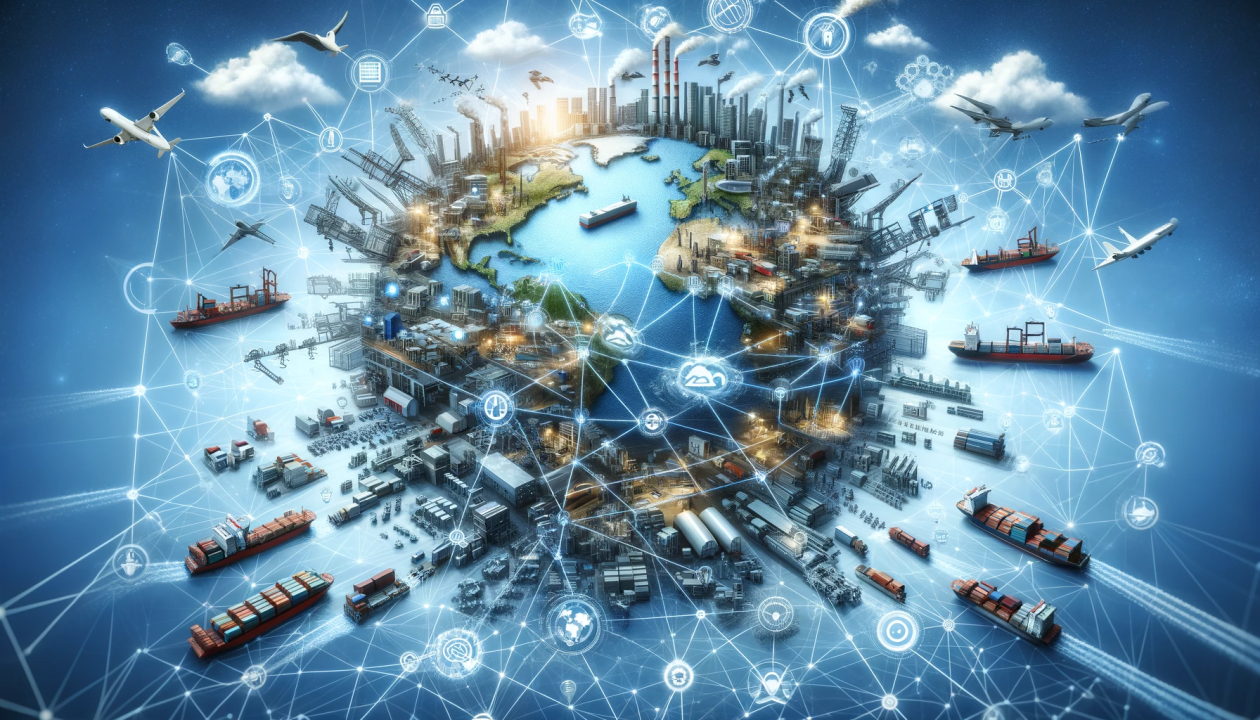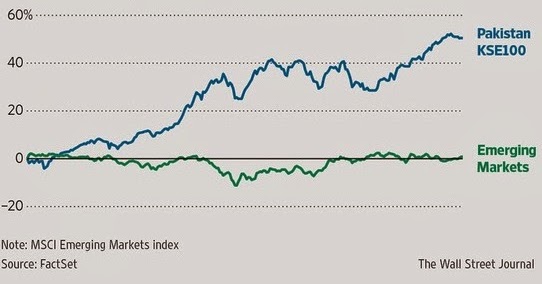The Great Decoupling's Impact On Global Trade And Supply Chains

Table of Contents
Geopolitical Tensions and Decoupling
The rise of protectionism and national security concerns are primary drivers behind The Great Decoupling.
The Rise of Protectionism and Trade Wars
Trade wars and protectionist policies are significantly accelerating the decoupling process. The imposition of tariffs, sanctions, and other trade barriers disrupts established supply chains, forcing businesses to re-evaluate their sourcing and production strategies.
- Examples: The US-China trade war, initiated in 2018, led to significant disruptions in various sectors, including technology and manufacturing. Tariffs imposed on goods from China forced many companies to relocate production to other countries, increasing costs and complexity. Similarly, sanctions imposed on Russia following its invasion of Ukraine have drastically altered global energy markets and supply chains reliant on Russian resources.
- Impact: Sanctions, while often politically motivated, significantly impact specific industries and countries. For instance, sanctions targeting specific technologies can limit access to vital components, hindering innovation and economic growth in affected regions. These disruptions highlight the interconnectedness of the global economy and the significant repercussions of geopolitical instability.
National Security Concerns and Supply Chain Resilience
National security concerns are driving a global push for supply chain resilience. Countries are increasingly prioritizing the domestic production of critical goods and technologies to reduce reliance on foreign suppliers and mitigate vulnerabilities.
- Critical Industries: Semiconductors, pharmaceuticals, and rare earth minerals are prime examples of industries where governments are investing heavily in domestic production capacity. The vulnerability exposed during the pandemic, particularly in the medical supply chain, has galvanized efforts to enhance national self-sufficiency.
- Government Initiatives: Many governments are implementing policies to incentivize reshoring (returning production to the home country) and nearshoring (relocating production to nearby countries). These initiatives often involve subsidies, tax breaks, and regulations designed to support domestic manufacturing. However, building more resilient, localized supply chains often comes at a cost, potentially leading to higher production costs and reduced efficiency compared to globally optimized networks.
Economic Impacts of Decoupling
The Great Decoupling has far-reaching economic consequences, impacting everything from inflation rates to the very structure of global value chains.
Increased Production Costs and Inflation
Decoupling inevitably leads to higher production costs. Transportation costs rise as goods travel longer distances, labor costs vary significantly across regions, and the sourcing of raw materials becomes more complex and potentially expensive.
- Inflationary Pressures: Supply chain disruptions, exacerbated by decoupling, contribute to inflationary pressures. The increased costs of production are often passed on to consumers, leading to higher prices and reduced purchasing power. This effect is particularly noticeable in industries heavily reliant on global supply chains.
- Consumer Impact: Consumers are directly impacted by rising prices due to increased production costs. This can lead to a decrease in consumer spending and a slowdown in economic growth. The challenge for policymakers is to balance national security concerns with the need to maintain economic competitiveness and affordability.
Restructuring of Global Value Chains
Companies are actively adapting their global value chains in response to The Great Decoupling. This involves diversifying sourcing and production locations to mitigate risks associated with geopolitical instability and supply chain disruptions.
- Relocation and Restructuring: Many multinational corporations are relocating production facilities to multiple countries to reduce reliance on single sourcing locations. This often involves establishing regional hubs and diversifying their supplier base.
- Challenges and Opportunities: While this restructuring offers increased resilience, it also presents challenges. Companies face higher coordination costs, increased complexity in managing geographically dispersed operations, and potential difficulties in maintaining quality control across different production sites. However, this restructuring also opens opportunities for businesses to explore new markets and establish stronger relationships with regional suppliers.
The Future of Global Trade in a Decoupled World
The Great Decoupling is fundamentally altering the landscape of global trade, fostering regionalization and driving technological advancements.
Regionalization and Trade Blocs
Regional trade agreements are becoming increasingly important as countries seek to strengthen economic ties within their geographical proximity. This trend is leading to the formation of new trade blocs and the strengthening of existing ones.
- Regional Trade Agreements: The Regional Comprehensive Economic Partnership (RCEP) and the United States-Mexico-Canada Agreement (USMCA) are examples of significant regional trade agreements that are reshaping trade flows and fostering regional economic integration.
- Implications: The growth of regional trade blocs can lead to both increased trade within regions and potentially reduced trade between regions. This could lead to a more fragmented global trading system, with different sets of rules and regulations governing trade within various blocs.
Technological Advancements and Supply Chain Automation
Technology plays a crucial role in mitigating the challenges posed by decoupling. Automation, data analytics, and artificial intelligence are enabling greater supply chain visibility, improved efficiency, and enhanced resilience.
- Automation and Visibility: Technologies such as blockchain and IoT are improving supply chain transparency, allowing businesses to track goods in real-time and respond quickly to disruptions. Automation in manufacturing and logistics reduces reliance on human labor and improves efficiency.
- Impact on Employment and Efficiency: While automation can lead to increased efficiency and productivity, it also raises concerns about potential job displacement. The future of work in a decoupled world will necessitate a focus on workforce retraining and adaptation to new technologies.
Conclusion
The Great Decoupling is reshaping the global economic landscape. Its impacts are far-reaching, leading to increased production costs, heightened geopolitical tensions, and a fundamental restructuring of global value chains. The future of global trade will likely be characterized by a greater emphasis on regionalization, supply chain resilience, and the adoption of advanced technologies to mitigate risks and enhance efficiency. While challenges abound, understanding the dynamics of The Great Decoupling is crucial for businesses and policymakers alike.
To further explore the complexities of The Great Decoupling and its implications for your business or field of study, consider researching the impact of specific regional trade agreements, the role of automation in supply chain resilience, or the development of new diversification strategies. The implications of this fundamental shift in global trade are vast and warrant continued examination. Understanding and adapting to the nuances of The Great Decoupling will be essential for navigating the evolving global economy.

Featured Posts
-
 Exploring Childcare Alternatives Beyond Traditional Daycare
May 09, 2025
Exploring Childcare Alternatives Beyond Traditional Daycare
May 09, 2025 -
 6 Market Crash Operation Sindoor Shakes Pakistans Kse 100
May 09, 2025
6 Market Crash Operation Sindoor Shakes Pakistans Kse 100
May 09, 2025 -
 Paris Saint Germains Triumph Luis Enriques Impact On The French Champions
May 09, 2025
Paris Saint Germains Triumph Luis Enriques Impact On The French Champions
May 09, 2025 -
 How The Fentanyl Crisis Influenced The U S China Trade Agenda
May 09, 2025
How The Fentanyl Crisis Influenced The U S China Trade Agenda
May 09, 2025 -
 Young Thugs Uy Scuti Release Date Hints And Album Expectations
May 09, 2025
Young Thugs Uy Scuti Release Date Hints And Album Expectations
May 09, 2025
